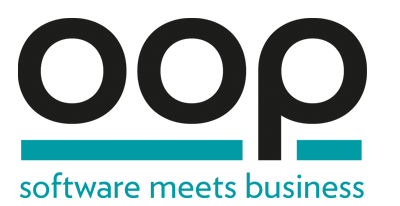Please note:
On this page you will only see the English-language presentations of the conference. You can find all conference sessions, including the German speaking ones, here.
The times given in the conference program of OOP 2024 correspond to Central European Time (CET).
By clicking on "VORTRAG MERKEN" within the lecture descriptions you can arrange your own schedule. You can view your schedule at any time using the icon in the upper right corner.
Thema: DDD
- Montag
29.01. - Mittwoch
31.01. - Donnerstag
01.02. - Freitag
02.02.
In the times of microservices, it becomes clear how important Domain-Driven Design (DDD) still is. Only with strategic design (i.e. DDD on a large scale) and the division of the domain into bounded contexts can a sensible cut be found for the microservices.
In this workshop we will take a day to take a closer look at DDD. The workshop consists of alternating lecture, discussion and exercises.
Target Audience: Architects, Developers, Project Leaders, Managers, Decision Makers, Domain Experts
Prer…
Xin has lived and breathed DDD for more than a decade. Drawing on her experiences, Xin makes a case for DDD’s rising relevance in a post-modern world, where aging companies struggle with aging software, while adding new software and complexity to their IT portfolio. With good attractor effect DDD is evolving from a software-centric design discipline to a multi-dimensional toolbox. Join Xin to reflect together on, how DDD can help us sustain meaning and productivity in a reality of vast…
In a microservices architecture, services shall be as loosely coupled as possible. Still, they need to communicate with each other in order to fulfill business requirements. Now there are so many questions around this communication (synchronous vs asynchronous, event-driven? what is the influence on the coupling of your services? ...?). This talk will help you answer these questions for your project. You will better understand not only the architectural implications but also the effect on the…
**TL, DR;** Embrace no-code to explore more models and throw most of those models away. You will quickly discover what works, and what matters, in the business process that you are automating. If it matters enough, you can extract it into a high-fidelity design in code.
Target Audience: Everyone with a stake in the software production process
Prerequisites: None
Level: Basic
Extended Abstract:
Many software projects still consume considerable resources, and take a long time before anything…
**TL,DR**; In this course you will learn to map your business and technological landscape in such a way that a common language emerges to discuss strategic thinking and decision-making.
Max. number of participants: 13
Target Audience: Architects, Developers, Project Leaders, Decision Makers
Prerequisites: Basic theoretical knowledge of DDD
Level: Advanced
Extended Abstract:
Organizations face more and more complexity these days as a result of a mesh of products, services, technology and the…

